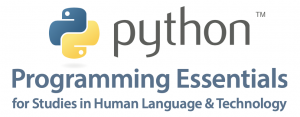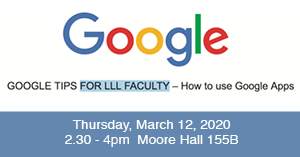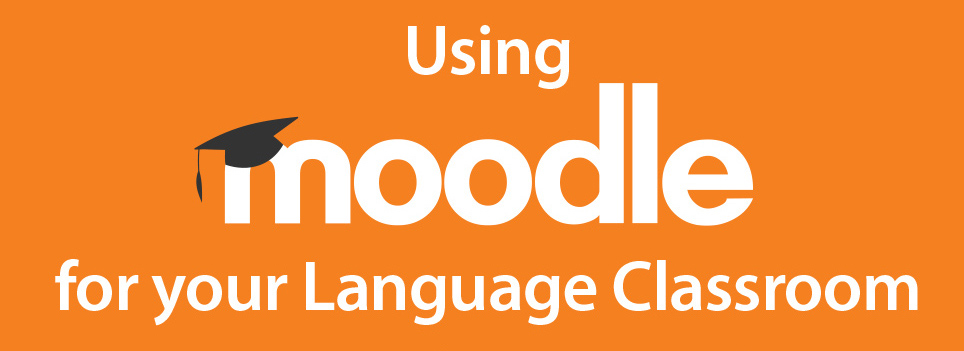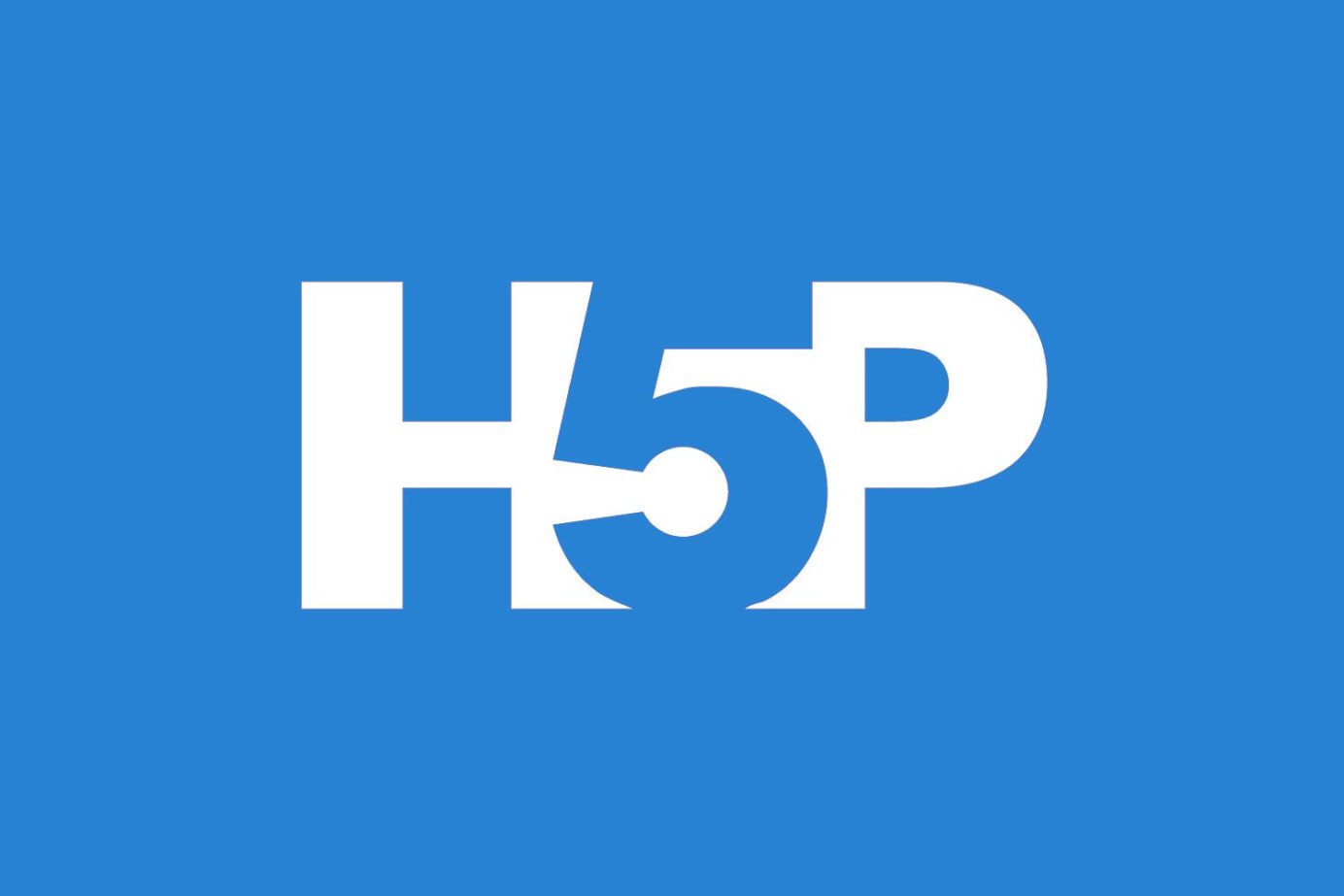2020 Demos & Discussion series:
November 19
3p – 4.30p
Online
Python Level 4: Computational Approaches to Studies in Human Language & Technology Using Python and NLTK
Presenters: Richard Medina & Aitor Alvarez
In this two-part workshop participants will learn to apply techniques and best practices for utilizing the Natural Language Toolkit (NLTK) Python package to support studies in Human Language & Technology. The workshop is split into two 90-minute sessions. The goal of both sessions is to provide participants experience and guidance with integrating computational approaches in their work. The workshop is part of the series, Programming Essentials for Studies in Human Language & Technology.
Session 2: Computing With NLTK
Session 2 demonstrates NLTK through examples. The session includes a walkthrough of two or three illustrative use cases for data driven language scholarship that utilize existing corpora and the NLTK.
NOTE: Ideally, attendees at this workshop will either have attended the previous Python workshops or have worked through the recordings and tutorial that the CLT offered May 2020.
Information from Python workshops in May 2020 for review:
Compiled activity guide/tutorial (pdf)
Level 1 | Level 2 | Level 3
This session will be held using Zoom. Connection information will be emailed to registered attendees prior to the workshop date.
Questions? Please contact cltmanoa@hawaii.edu
November 18, 2020
1.30p – 2.30p
Online
CLT Media Services
Wednesday, November 18, 1:30-2:30 pm
Panel presenters: Julio C. Rodriguez, Dave Oka, Robert Wong, & Clayton Chee
Did you know that CLT offers assistance with graphic design, audio, and video for college faculty, staff, and graduate assistants? Register and come learn more about what is offered during our online panel discussion.
Questions? Please contact cltmanoa@hawaii.edu
November 12
3p – 4.30p
Online
Python Level 4: Computational Approaches to Studies in Human Language & Technology Using Python and NLTK
Presenters: Richard Medina & Aitor Alvarez
In this two-part workshop participants will learn to apply techniques and best practices for utilizing the Natural Language Toolkit (NLTK) Python package to support studies in Human Language & Technology. The workshop is split into two 90-minute sessions. The goal of both sessions is to provide participants experience and guidance with integrating computational approaches in their work. The workshop is part of the series, Programming Essentials for Studies in Human Language & Technology.
Session 1: Working With Data in Python
Session 1 will begin with an introduction to common patterns and idioms for working with data structures in Python and will introduce the NLTK Python package. Participants not familiar with Python and/or NLTK are encouraged to attend session 1. Prior exposure to Python will be useful but not necessary (see material from our May 2020 session for more info).
NOTE: Ideally, attendees at this workshop will either have attended the previous Python workshops or have worked through the recordings and tutorial that the CLT offered May 2020.
Information from Python workshops in May 2020 for review:
Compiled activity guide/tutorial (pdf)
Level 1 | Level 2 | Level 3
July 9, 2020
2p
Online
Laulima Assessment Tools
This 60-minute pop-up session will provide an overview of assessment tools in Laulima, with an emphasis on possibilities for language assessment.
Assessment tools in Laulima include Tests, Quizzes and the Gradebook. CLT Faculty will advise on strategies and practices for using these tools in online course design and delivery.
This session will be held using Zoom. Connection information will be emailed to registered attendees prior to the workshop date.
May 1, 2020
9.30a – 11a
Online
L3 session recording
L3 Activity guide
Activity guide 1-3
(all levels merged)
Python Level 3: Exploring Python Libraries for Studies in Human Language & Technology

This workshop builds upon the prior two Python sessions (Python Level 1 and 2). In this workshop participants will learn techniques and best practices for utilizing Python libraries to support language study and scholarship. Two libraries will be demonstrated: Natural Language Toolkit (NLTK) and Gensim. The goal of the workshop is to provide participants experience and guidance on using third party libraries. Example use cases with each of the selected libraries will be demonstrated.
April 24, 2020
9.30a – 11a
Online
Python Level 2: Essentials for Reading, Writing, & Processing Data Files

This workshop introduces techniques for opening, reading, processing, and writing data files. Demonstrations of how Python structures such as lists, dictionaries, and sets can be used to efficiently work with data stored in text files. Basic familiarity with Python programming or scripting is expected (See previous workshop in this series).
April 17, 2020
9.30a – 11a
Online
Python Level 1: Fundamentals of Computer Programming for Language Data Processing
This workshop introduces fundamental concepts of computer programming to a non-technical audience. It is intended to assist faculty and students establish a sound understanding of programming constructs that are useful for working with more advanced tasks, for example, in NLP, Computational Linguistics, and other language data processing endeavors. Concepts such as the use of variables, functions, loops, basic input and output will be addressed. Additionally, recommended best practices for working with Python script files and tools will be demonstrated. Participation does not require prior experience or exposure to computer programming.
March 12, 2020
2.30p – 4p
Moore Hall 155B
Google Tips for LLL Faculty – How to use Google Apps
This 90-minute workshop designed for LLL faculty will cover the basics of using the four core Google Drive apps: Google Docs, Google Sheets, Google Slides, and Google Forms. Topics to be covered include managing apps, security and sharing, and pedagogical applications of each app.
The workshop will be offered once only (March 12, 2020) from 2:30-4:00 p.m. in 155B Moore Hall. Participants will have an opportunity to gain hands-on experience with these apps and are encouraged to bring specific questions that will be addressed by the workshop facilitators.

March 4, 2020
2p – 3p
Moore Hall 155B
Intro to Google Classroom
Do you use Google Drive? Ever wondered about alternatives to using Laulima? Come learn about Google Classroom, a class development platform designed for teachers who want to engage students in an organized, efficient and interactive way.
Google Classroom integrates with Google Drive and other Google apps, and allows students to work individually or collaboratively. Google Classroom also offers easy options for online tests, quizzes and grading!
This workshop will cover how to create classes, add students, post announcements and assignments, and provide feedback and grades for students. Join us as we highlight some of the teacher-friendly features of Classroom!

January 30, 2020
2p – 3p
Moore Hall 155B
 Using Moodle for Your Language Classroom – Level 2 (Intermediate)
Using Moodle for Your Language Classroom – Level 2 (Intermediate)
This workshop takes a more in-depth look at activity types and course functions in the Moodle learning managment system. In addition to standard activity functions, audio recording and H5P content types will be demonstrated. This session is a continuation of the “Moodle Level 1” workshop held previously. Attendance at the “Intro to H5P” workshop is also recommended, but not required.
January 23, 2020
2p – 3p
Moore Hall 155B
Intro to H5P
Have you ever wanted to make an interactive video with built-in notes, links, and comprehension questions? Come learn about H5P, a powerful interactive content development platform designed to be plugged in to many learning management systems. Over 40 existing H5P content types enable interactive experiences such as interactive video, branching, and quizzes. This workshop will introduce a sampling of H5P content types and how they can be adapted to target online language learning experiences. No prior exposure or knowledge of H5P is necessary to participate.
January 9, 2020
2p – 3p
Moore Hall 155B
 Using Moodle for Your Language Classroom – Level 1 (Beginners)
Using Moodle for Your Language Classroom – Level 1 (Beginners)
The CLT will be shutting down the Web Audio Utility prior to the Spring 2020 semester. In its place, the Moodle learning management system will be made available to support language learning specific services and functions. This workshop is intended to introduce the components of the Moodle environment and is geared for faculty who have had little prior exposure to the Moodle environment.


